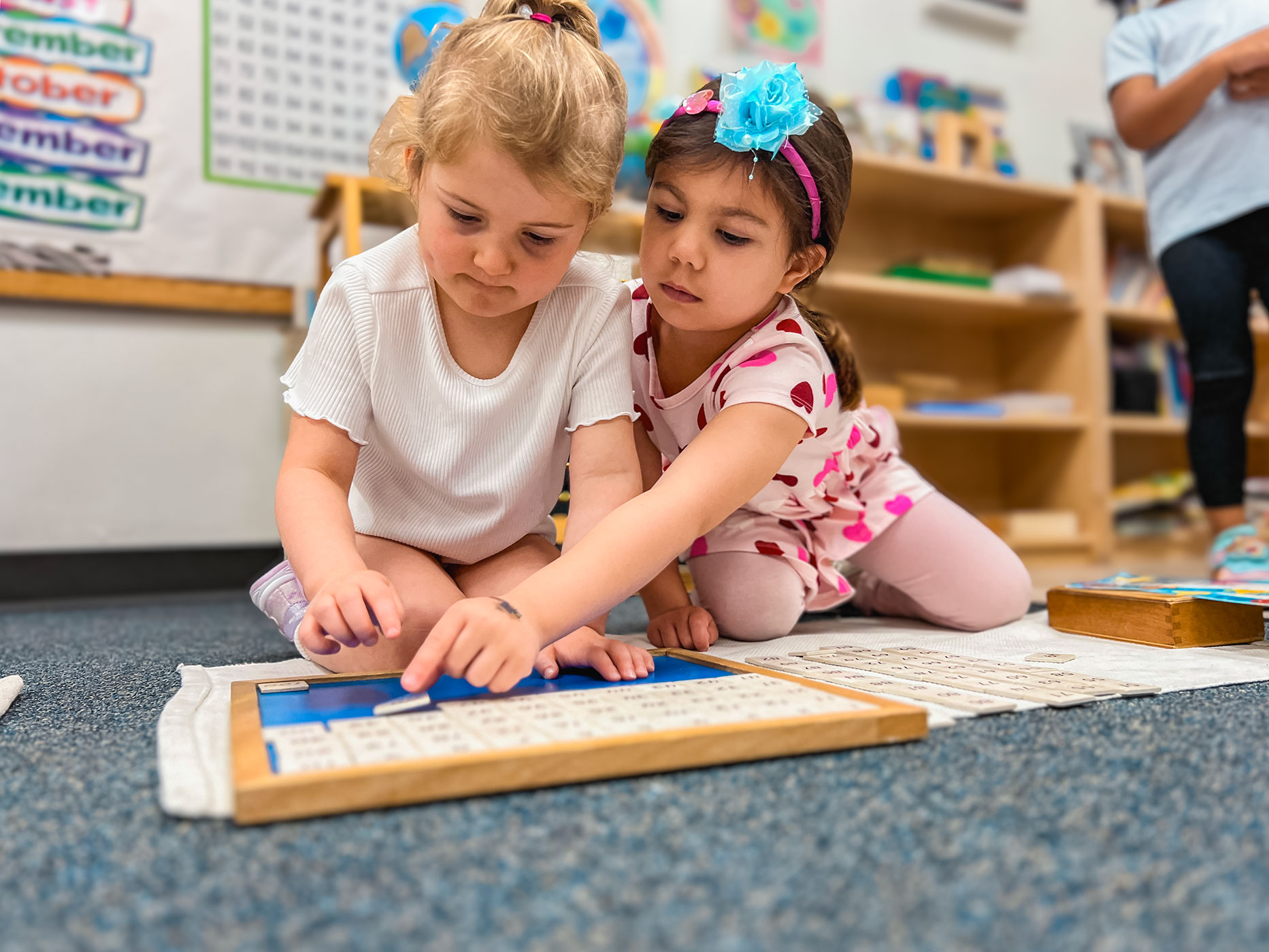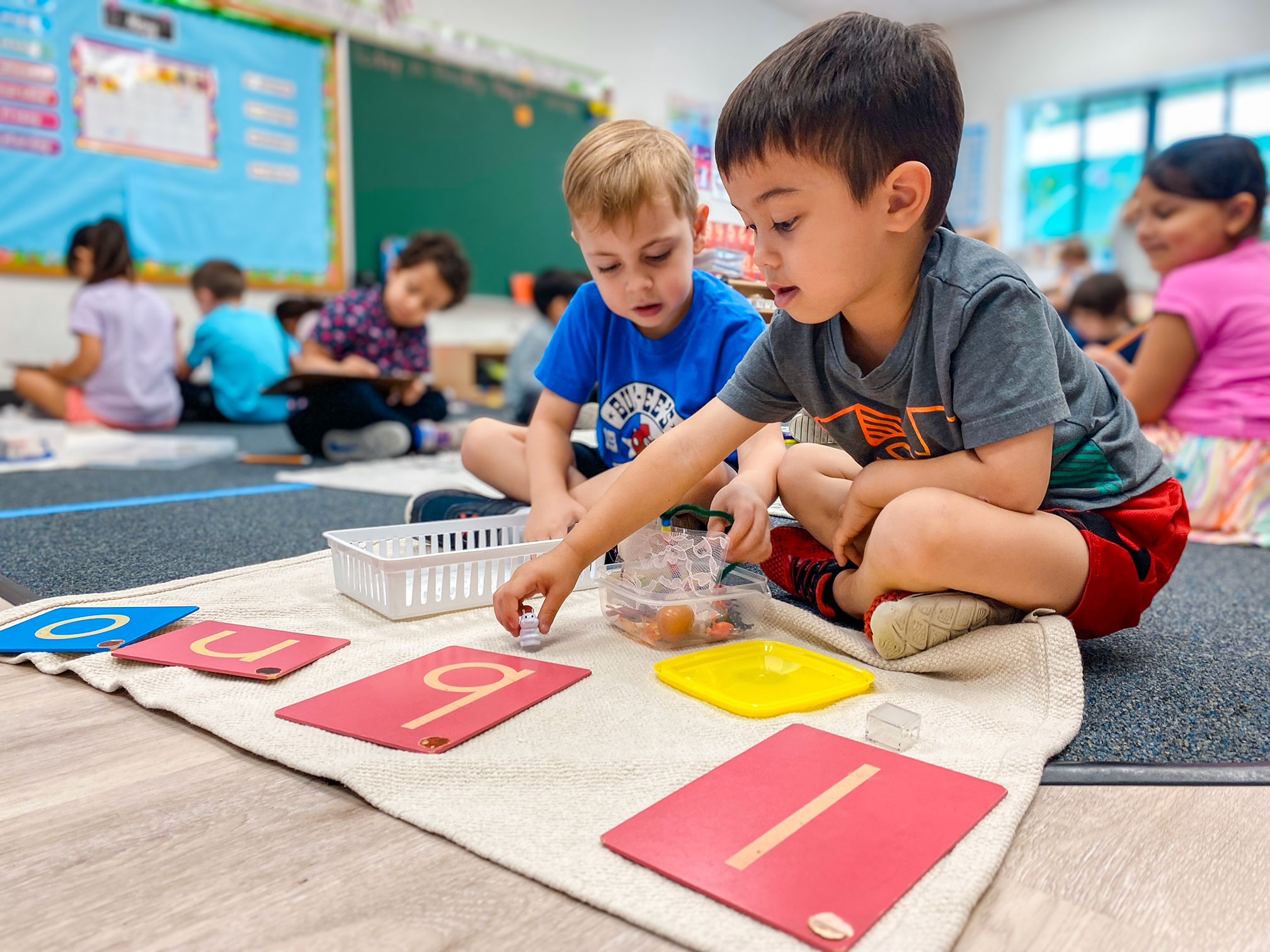The early years of a child's life are a whirlwind of discovery. From their first wobbly steps to their first attempts at language, every new experience shapes their understanding of the world. But development goes beyond the physical and intellectual. These formative years are also crucial for building the foundation of social and emotional well-being. At Lakewood Montessori, we recognize the importance of nurturing this vital aspect of a child's growth.
Imagine your child's brain as a beautiful garden. In the early years, this garden grows rapidly, forming connections that will shape your child throughout life. Just like plants need sunshine and water, your child needs certain things to develop healthy social and emotional skills.
What Are Social and Emotional Skills?
These are the skills that help your child:
- Feel and express their emotions in a healthy way, whether it's happiness, sadness, anger, or frustration.
- Build friendships and play well with others, taking turns and sharing.
- Solve problems and make decisions on their own.
Why Social-Emotional Development Matters
Social-emotional development encompasses a child's ability to understand and manage their emotions, build healthy relationships, and navigate challenges. These skills are the building blocks for a happy and successful life. Consider the following:
Do Well in School: Strong social-emotional skills contribute to a child's ability to focus, collaborate with peers, and persevere through difficulties. They are better equipped to handle the social dynamics of the classroom and engage meaningfully in learning.
Make Friends: Children who can recognize and express their emotions effectively are better at building friendships and resolving conflicts peacefully. They are more empathetic towards others, fostering stronger social connections.
Deal With Challenges: Life throws curveballs, and social-emotional skills equip children to cope with setbacks and challenges. They can manage frustration, problem-solve effectively, and bounce back from disappointment.

Lakewood Montessori: Fostering Social-Emotional Growth
Our philosophy at Lakewood Montessori goes beyond academics. We believe in creating a nurturing environment that fosters a child's social and emotional well-being. Here are some ways we achieve this:
The Power of Play: Play is about more than just fun at Lakewood Montessori. It's a crucial learning tool. Children learn to share, take turns, negotiate, and express themselves creatively through dramatic play, group games, and collaborative activities.
Mixed-Age Classrooms: Our classrooms group children of different ages, fostering a sense of community and mentorship. Older children learn leadership and empathy as they help younger classmates, while younger children benefit from positive role models and a sense of belonging.
The Montessori Curriculum: The Montessori curriculum itself is designed to promote self-confidence and independence. Children work at their own pace, mastering skills and taking pride in their accomplishments, which fosters a sense of self-efficacy, a key component of emotional well-being.
Lessons in Grace and Courtesy: Social etiquette may seem small, but it plays a significant role in social interaction. At Lakewood Montessori, we explicitly teach children greetings, apologies, and respecting personal space. These lessons help them navigate social situations with confidence and build positive relationships.
Open Communication and Positive Reinforcement: Our teachers create a safe space for children to express their emotions. We actively listen, offer guidance, and celebrate positive emotional regulation and good choices, building trust and fostering a sense of security.
How Can You Help Your Child Grow?
While Lakewood Montessori provides a structured environment to foster social-emotional development, parents also play a vital role in this process. Here are some tips to support your child's social-emotional growth at home:
Be a Role Model: Children learn by observing adults. Model healthy ways to express emotions, navigate conflict, and interact with others.
Provide Opportunities for Play: Encourage imaginative play and social interaction. Board games, pretend play, and group activities contribute to social-emotional development.
Open Communication: Create a safe space for your child to discuss their feelings. Listen actively and offer support without judgment.
Positive Reinforcement: Celebrate your child's efforts to manage emotions, cooperate with others, and solve problems.
Building a Strong Foundation for the Future
Giving your child the gift of healthy social-emotional development empowers them to build strong relationships, manage their emotions, and overcome challenges. At Lakewood Montessori, academic achievement goes hand-in-hand with social-emotional well-being. We empower children to become confident, caring, and strong individuals by fostering a supportive and engaging environment. We equip them with the skills they need to thrive in school, build meaningful relationships, and navigate the complexities of life with resilience and emotional intelligence.
Looking to Learn More?
If you're interested in learning more about our philosophy and approach to social-emotional development, we encourage you to contact Lakewood Montessori today. We'd be happy to schedule a visit and discuss how our nurturing environment can help your child blossom!

